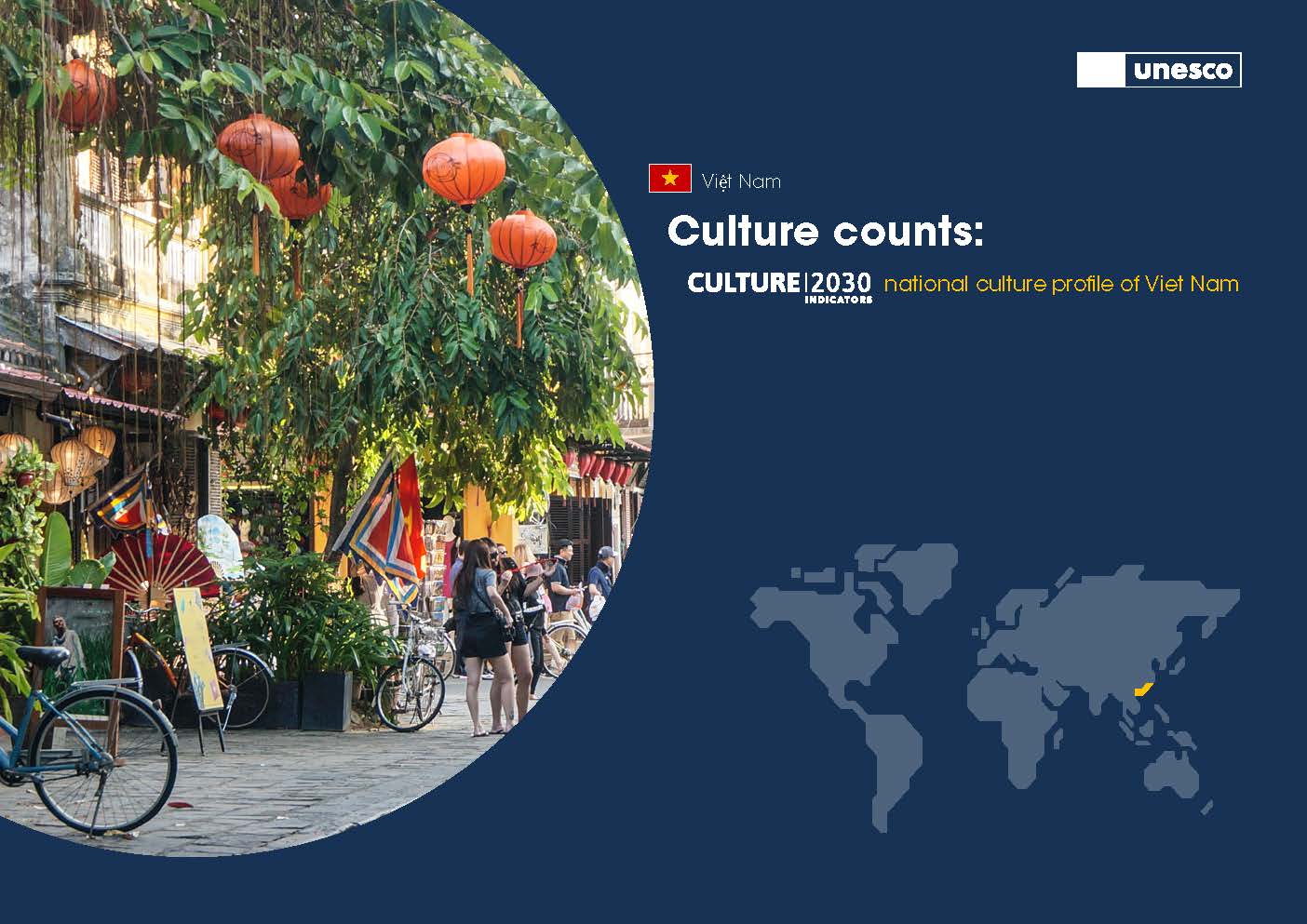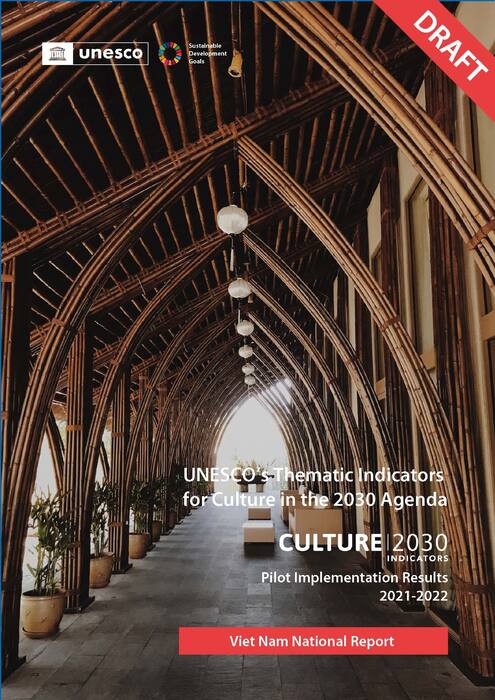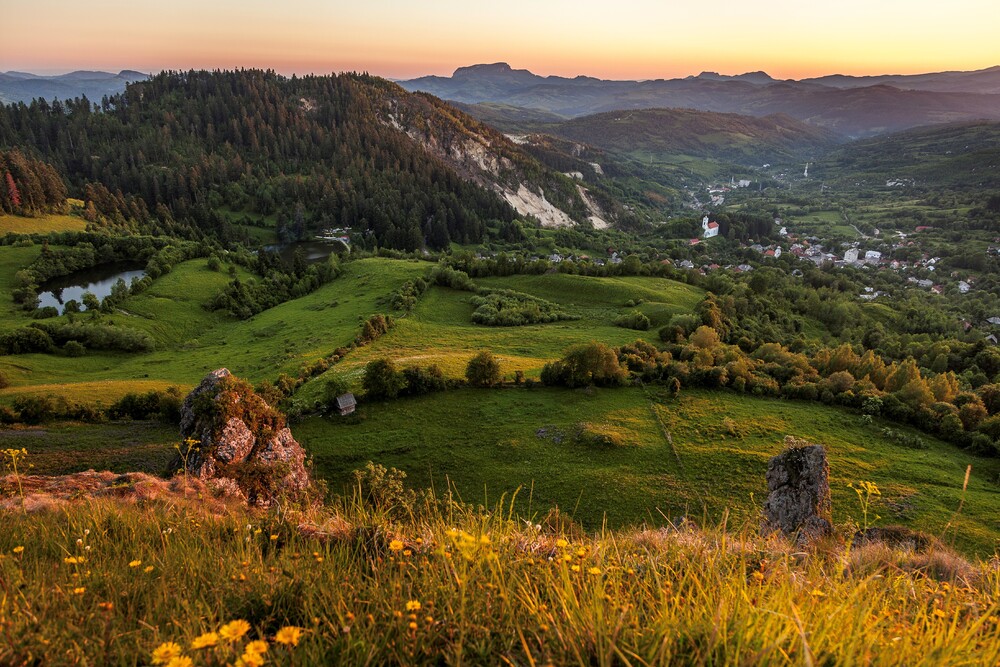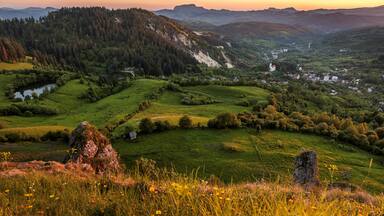Romania has ambitious aspirations regarding sustainable development and has set important milestones. The active role of the Department of Sustainable Development in the government imposes Romania as a regional pole of sustainable development. Following up its first implementation in 2018 under the UNESCO project Culture for Development Indicators Suite (CDIS), the National Strategy for the Sustainable Development of Romania 2030 (NSSDR 2030) was adopted, and it includes a special chapter dedicated to culture, entitled The Cultural Dimension of Sustainable Development. Many actions have been defined in the National Sectorial Strategy of Culture for 2023–2030. The participation of Romania in the UNESCO World Conference on Cultural Policies and Sustainable Development – MONDIACULT 2022 – reiterates the national support for mainstreaming sustainable development in cultural policies as well as mainstreaming culture in sustainable development processes.
The national-level implementation was led by the Ministry of Culture with the National Institute for Cultural Research and Training (NICRT) and took place alongside urban-level implementation led by the Mayor’s Office of the city of Cluj-Napoca and the Cluj Cultural Centre from December 2021 to September 2022.
The implementation team was accompanied by UNESCO, and the project was launched with a kick-off workshop gathering over 13 stakeholders and 38 participants, including representatives from the national and local authorities of the city of Cluj-Napoca; organizations from civil society, academia and the private sector; and other competent entities whose work is informed by culture.
The project was implemented in a cooperative and participatory manner, with experts and implementation teams exchanging on technical challenges to adapt the methodology to the specificies of Romania. The project benefited from the valuable contribution of representatives from no less than 17 national and local authorities and institutions who provided data for the construction of the indicators.
Implementation concluded in September 2022 with the organization of a restitution workshop which gathered 38 participants and 15 stakeholders to present and validate the results of the implementation, share key messages, and make visible culture’s contribution to sustainable development. It promoted results dissemination to encourage policy action and advocated for commitments from stakeholders to focus on strengthening data collection, measurement and monitoring for culture.
Culture Counts: Culture|2030 Indicators urban culture profile of Romania

For the first time, a publication series titled 'Culture counts: The Culture|2030 Indicators Culture Profiles' uncovers and offers evidence of the profound impact of culture on sustainable development. Read the issue for Romania.
Culture|2030 Indicators urban report of Romania

The summary results, key findings, analysis, and recommendations are based on the field document titled 'Culture|2030 Indicators National Report of Romania'.
Expenditure on heritage
Public spending on heritage was 680,117,218 RON. In addition, over 50 NGOs and private businesses spend on preservation and restoration.
Sustainable management of heritage
The heritage registry includes 30,147 elements. A ‘Heritage Ambulance’ conducts emergency interventions.
Climate adaptation & resilience
Although there are eight strategies addressing climate change, none target the impact on heritage.
Cultural facilities
There are 5 billion square meters of museum floor space, and performance venues have 52,310 seats.
Open space for culture
This indicator is only calculated at the urban level.
Culture in GDP
In 2019, culture accounted for 1.5% of gross domestic product, with advertising and software making the largest contribution.
Cultural employment
Of all jobs, 3.1% were in culture, almost half of which were in architecture/engineering and higher education.
Cultural businesses
About 10% of businesses were in culture (7.6%) or culture-related sectors (2.8%), and the number increased by 0.6 percentage points between 2018 and 2019.
Household expenditure
Culture fell from 2.6% in 2019 to 1.3% of all spending in 2020.
Trade in cultural goods & services
Cultural goods made 1% of exports in 2019, with the largest part linked to recording media.
Public finance for culture
Public spending on culture in 2020 was €1.4 billion in 2020, or €72.43 /capita.
Governance of culture
Even though there is no framework law for culture, there is a dedicated central budget.
Education for Sustainable Development
Global ctizenship and sustainable development are integrated in numerous education subjects.
Cultural knowledge
The importance of intangible heritage is included in many courses at post-secondary level.
Multilingual education
At primary level 56% of total hours, and at lower secondary 67% of total hours are devoted to multilingual teaching.
Cultural training
Information and communication technologies and literature-related courses are most popular in post-secondary education.
Culture for social cohesion
Even though Romanians have a low trust of others, most would accept neighbours of a different culture.
Artistic freedom
Artistic freedom is well-protected in Romania by several independent agencies and unions.
Access to culture
Libraries are the best distributed cultural facilities in the country while performance venues are the most unevenly distributed ones.
Cultural participation
Over half the population participated in a cultural activity in the last 12 months. Younger people preferred to go out to cinemas while older people preferred libraries ad traditional cultural activities
Participatory processes
Several institutions work towards including minority populations, especially the Roma.
-
Heritage and sustainable development are both key topics in Romania as evidenced by heritage-related initiatives undertaken
, adopted policies
, allocated resources
. However, there are no studies or specific measures to assess the effect of climate change
, or manage tourism impacts
on heritage.
-
The total number of jobs in cultural industries and tourism, sports and recreation make almost 5% of total employment, which shows that culture and related activities play a pivotal role in Romania’s workforce landscape
.
-
While three-quarters of people would be content to have a neighbour of a different race or religion, and 58% would accept a foreign neighbour, only 6.5% felt others are generally trustworthy
.
-
If younger people tended to participate in cultural activities by going out, older people participated in culture at home
.
Concepts of sustainable development lie at the core of the UNESCO Culture Conventions and programmes, each of them bringing a specific perspective or focus in line with its individual scope and conceptual framework. With the adoption of the 2030 Agenda, all of the Conventions have incorporated relevant SDGs within their implementation and monitoring mechanisms by aligning their concepts and identifying specific SDGs or Targets to be integrated into their results framework.
The UNESCO Culture|2030 Indicators framework integrates data from reporting on UNESCO Culture Conventions and programmes. Periodic reporting is one of the core monitoring mechanisms of the UNESCO Culture Conventions. The date of Viet Nam’s participation in UNESCO reporting is recorded by last submission in the timeline below.
Date of participation in UNESCO Reporting by last submission.
Convention for the Protection of Cultural Property in the Event of Armed Conflict and its two protocols
Convention on the Means of Prohibiting and Preventing the Illicit Import, Expert and Transfer of Ownership of Cultural Property
Convention Concerning the Protection of World Cultural and Natural Heritage
Convention on the Protection of the Underwater Cultural Heritage
Convention for the Safeguarding of the Intangible Cultural Heritage
Convention on the Protection and Promotion of the Diversity of Cultural Expressions
Recommendation concerning the Protection and Promotion of Museums and Collections, their Diversity and their Role in Society
Recommendation on the Historic Urban Landscape
Recommendation on the Status of the Artist
Culture's transversal contribution towards the 2030 Agenda is captured in the framework. In Romania, culture's direct contribution in achieving progress towards the targets of the 2030 agenda is summarized in the following highlights.

SDG 4.4 Skills for employment
SDG 4.7 Knowledge for sustainable development
Dedicating almost half of instructional hours to cultural education, covering language acquisition to computer use , lower secondary education plays a crucial role in developing skills essential for employment and entrepreneurship. Additionally, substantial classroom time is devoted to global citizenship and education for sustainable development
.
At post-secondary and higher education, a wide range of courses offer students opportunities for pursuing cultural and creative activities and vocational or professional careers . However, few courses offer professional training specifically focused on managing cultural institutions.

SDG 11.4 Cultural & natural heritage
Romania has devoted significant resources to supporting, maintaining and developing its heritage, both in terms of expenditure , institutions and policies
, and disaster management
. More specifically, heritage elements are integrated across a wide range of national policies, which have inclusive consultation of local interests. The Ambulance for Monuments
exemplifies Romania's innovative efforts to elevate the importance of heritage and sustainable development.

SDG 16.7: Participatory decision-making
SDG 16.10: Fundamental freedoms
SDG 16.b: Non-discriminatory policies
Through the ratification of the Convention for the Protection of Cultural Property in the Event of Armed Conflict by the Decree of Ratification no.605/26.12.1957 , Romania seeks to contribute to just and strong institutions. The country's institutional and policy framework ensures minority involvement in defining cultural policies
and addresses violations of artistic freedom
. Providing education in the languages of ten national minorities
serves as another strong tool for ensuring fundamental freedoms and non-discrimination.
Policy
- Professionalize the sector: while culture is deeply rooted in all aspects of Romanian life, the absence of professionalization of cultural managers and of a clear delineation of roles and responsibilities among institutions weakens cultural engagement and related activities
. The creation of a central authority could help strengthen both cultural professionals and institutions, therefore strengthening cultural activities.
- Bridge the generational divide: there is a need to recognize the generational differences in cultural preferences
. While younger generations are more likely to go out to cinemas, the elderly preferred libraries and traditional cultural activities. This gap may stem from the influence of more recent cultural traditions, such as going to cinemas or concerts, versus longstanding community activities. To bridge this divide, consider innovative approaches that attract younger generations while simultaneously preserving and passing down community traditions from the elderly.
Data
- Set up and consistently operate a monitoring system that regularly measures and updates key indicators to evaluate the developments in the contribution of culture to sustainable development. The National Institute for Cultural Research and Training supports this suggested line of action, and the Ministry of Culture is considering including some or all of these indicators as supplementary metrics of the national sustainable development indicators.

